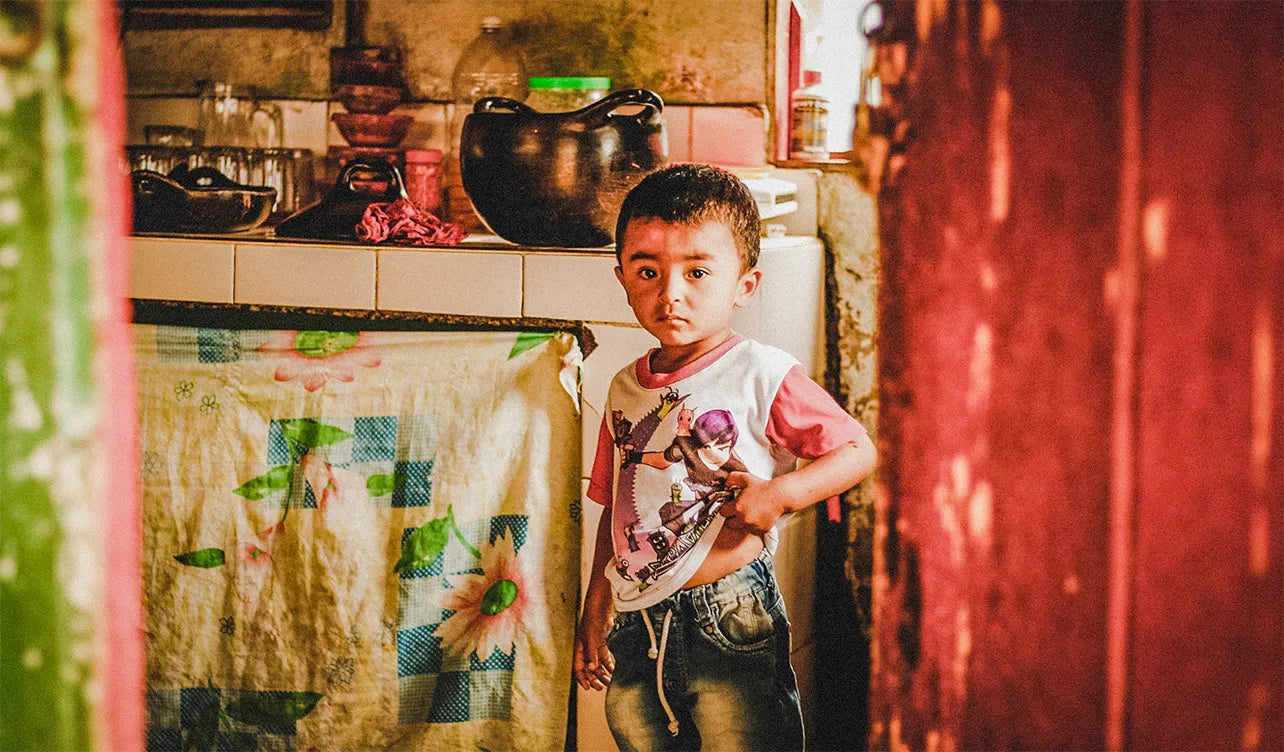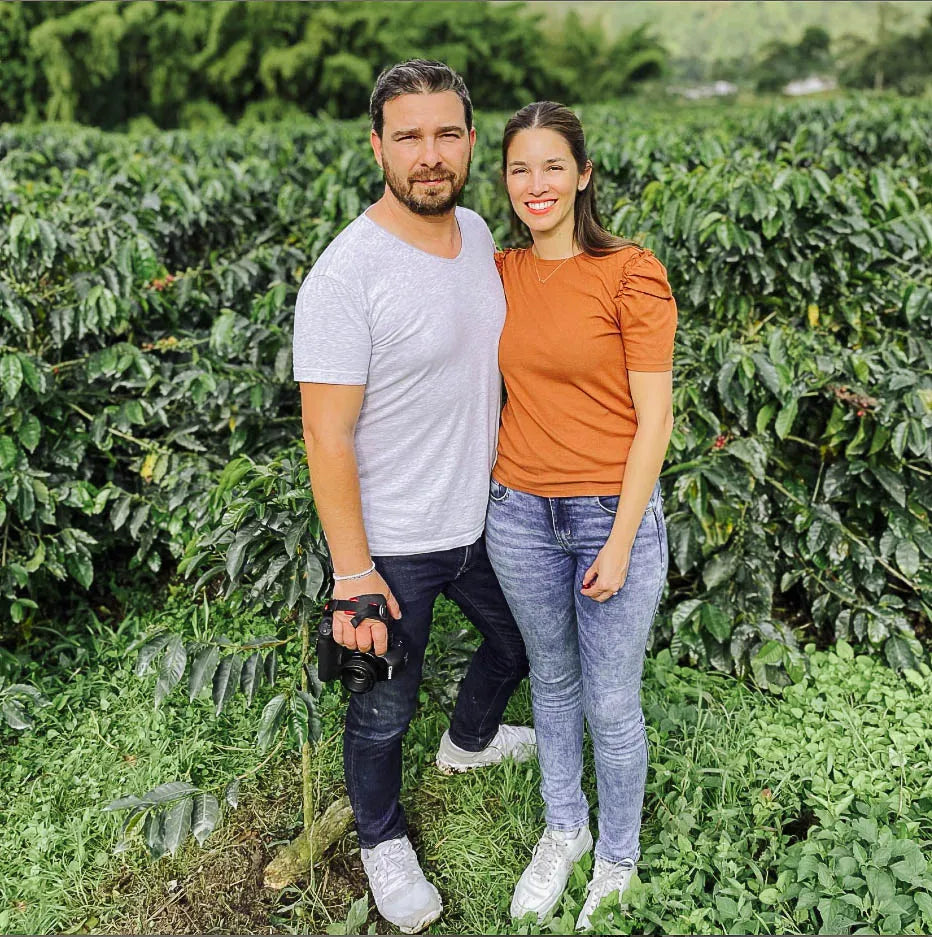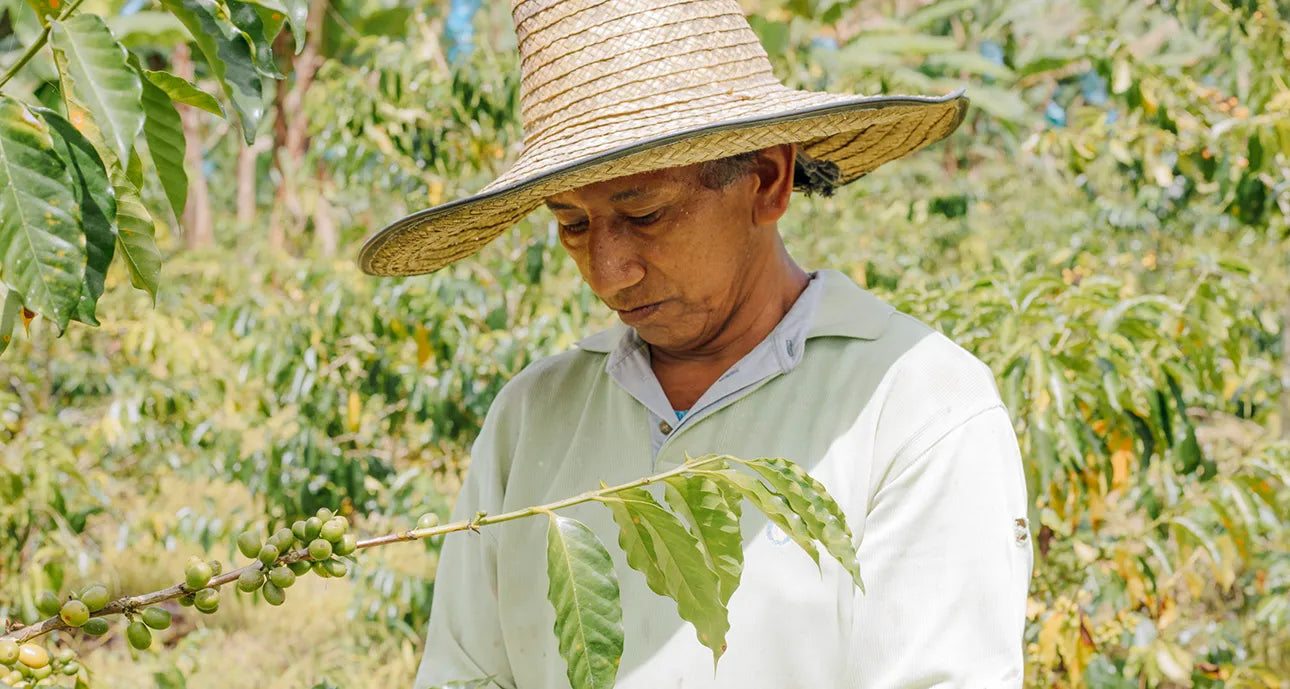Our Story
We speak truth, no matter how harsh.
Progeny was born from the necessity to fix a coffee chain that is taking advantage of farmers.


Progeny was Co-founded by Maria Palacio and John Trabelsi

Maria witnessed firsthand the struggle to maintain a living through coffee. When she moved to the U.S. and saw that coffee shops sold a cup for more than $5, she knew someone had to do something to help her community back home. But it's not until she brought John to Colombia that the two of them started brainstorming on a company that would provide a high-end customer experience and takes care of its farmers.
Their passion for uplifting others has helped them build a flourishing business and overcome small business obstacles in a crowded market multiple times.They’re on a journey to create the first international impact-driven coffee company.
Their passion for uplifting others has helped them build a flourishing business and overcome small business obstacles in a crowded market multiple times.They’re on a journey to create the first international impact-driven coffee company.
The Problem
If you roam around the bay area’s specialty cafes, you’ll have the chance to find an $8 pour over of a [at times questionable] specialty coffee. Meanwhile, in Colombia, farmers are stuck in a poverty loop selling their coffees 20% below margin. We’ve spent 4 years traveling around the country, researching and interviewing both successful and struggling farmers, to understand the current chain, exploring all distributions opportunities and the answer has multiple folds.

Broken Chain
The majority of Colombian coffee farmers rely heavily on an outdated coffee chain. Each 10 steps below are considerably chipping away pieces of their revenue. Since they also go through cooperative, the price at which they sell their coffee is influenced by worldwide production; the more coffee produced by industrialized countries, the lower the selling price. This is overly simplified, as there are some other complex financial mechanics at play but these uncertainties and fluctuations push farmers to exploit their lands, lowering the production quality, and forcing them to switch to unsustainable practices just to make ends meet.
Win-win-win
Progeny is working really hard to make this platform more than just a “trade” platform. We’re currently working with the farmers and providing them with free education, and technical agricultural support on new techniques to improve their farming methods and processes.
By assisting farmers to reach the specialty coffee score levels (80 and above), we are able to offer them the option to export through our distribution platform and showcase their coffees through our customers. This platform is currently only available for coffees that reach quality scores of 84 and above (Excellence Specialty Coffee). As we look to our future; improving our processes and growing our clientele, we will also provide coffees from farmers that have not quite made it to the excellence scores, thus providing an opportunity for every farmer to succeed.
By assisting farmers to reach the specialty coffee score levels (80 and above), we are able to offer them the option to export through our distribution platform and showcase their coffees through our customers. This platform is currently only available for coffees that reach quality scores of 84 and above (Excellence Specialty Coffee). As we look to our future; improving our processes and growing our clientele, we will also provide coffees from farmers that have not quite made it to the excellence scores, thus providing an opportunity for every farmer to succeed.
When the farmers sell their coffees to us, instead of relying on the market prices that unfairly fluctuate, we give them a set price per score. Progeny continues to grow exponentially and currently has doubled the income of over 25 farmers!
We dream to go beyond the bean, beyond the farm, by helping the farming families and their communities; by building school facilities, holding public agriculture classes and providing special funding for new tools, and possibly a new life.
We dream to go beyond the bean, beyond the farm, by helping the farming families and their communities; by building school facilities, holding public agriculture classes and providing special funding for new tools, and possibly a new life.
True Quality
Specialty coffee cannot be sold at the same price as other coffees. It requires more work, investment, and risk-taking; thus needs to have a trading platform in place that skips cooperatives and other middle-men. While there are renowned cooperatives, our research shows that they are not serving the needs of the farmers. Cooperatives rarely, if ever, pay what the coffees are actually worth.
As we researched deeper into other options that Colombian farmers have to get away from the current broken model; we kept looking to direct trade for answers. Although, in theory, this sounds like a great trade option it still involves many middlemen and is not as direct as the name implies. “Direct trade” oftentimes still involves a cooperative, an exporter, an importer, and a coffee roasting company; all of which lies between a farmer and his revenue. There isn't anything direct about this. The necessary transparency of Direct Trade is quite difficult to achieve; as there are many blind spots in the transaction process. To participate in actual Direct Trade requires spending significant time on the farms, traveling, and getting educated on how to source the right coffees.
As we researched deeper into other options that Colombian farmers have to get away from the current broken model; we kept looking to direct trade for answers. Although, in theory, this sounds like a great trade option it still involves many middlemen and is not as direct as the name implies. “Direct trade” oftentimes still involves a cooperative, an exporter, an importer, and a coffee roasting company; all of which lies between a farmer and his revenue. There isn't anything direct about this. The necessary transparency of Direct Trade is quite difficult to achieve; as there are many blind spots in the transaction process. To participate in actual Direct Trade requires spending significant time on the farms, traveling, and getting educated on how to source the right coffees.

